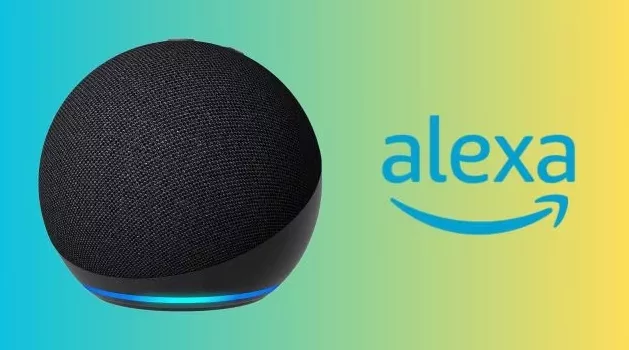Nearly a decade ago, Amazon launched the Echo-a voice-activated smart speaker promising to do much more than play music or answer basic questions. The original vision for Alexa was that it would go beyond the app ecosystem, providing users with frictionless access to multiple functionalities, or “skills.” But despite all the hype and investment, the Skills ecosystem of Alexa has not delivered, failing to get developers excited and ultimately not reaching the dream of “ambient computing.”
What Were Alexa Skills Supposed to Be?
Alexa Skills were supposed to be the replacement for traditional applications, according to Amazon’s vision. The idea was such that Alexa would be able to perform varied tasks without the user moving between different applications. What is the case with Smartphone Apps? Smartphone apps create distinct experiences limited to one use or another. Unlike smartphone apps, Alexa skills were designed to be used as an integrated experience between users and essential functions as simple voice commands. However, Amazon had actually envisioned much more out of the concept, and it took more effort to actualize that. Today, Alexa’s applications are generally restricted to what it had launched for-the same mundane ones-like playing music or setting a reminder- with little exciting user experiences appearing in sight.
The Basic Issues of Holding Alexa Skills
- Developer’s lack of interest
Amazon assumed people would throng in numbers to develop exclusive skills to add value to Alexa as envisioned, while they conceived of a huge third party. However, though above 160,000 skills exist the Skills library is limited considering millions of apps on general platforms. Some of the primary reasons for this will include an inability to monetize the same, complicated ways to develop skills, lack of easy marketing channels or means that can promote those skills adequately. Since Amazon does not have social media or any hyper-targeting ad method like smartphones skills in Alexa do not support easy users’ reach-out.
- User Interface Frustrations
The interface to enable access and usage of Skills using Alexa is not as intuitive as Amazon would have liked it to be. For instance, ordering a pizza, it may take several dialogues back-and-forth, additional permissions, as well as interaction with some phone app. It can be easier for a customer to navigate through a mobile application than doing multiple moves by voice commands alone, making the design unintuitive, which negates this seamless appeal that Alexa makes.
- Fragmentation of Experience and Usability Limitations
One of Alexa’s issues is that a skill must be called by its name, and a skill cannot be requested by its user to execute the needed task. This is an uneven experience because users need to remember the exact names of the skills, and in most cases, users may not remember the exact names of the skills; this discourages frequent usage of the skills. Further, Alexa does not even know how to process cross-skills interactions, like cross-checking prices for a pizza from different services.
Despite these challenges, Amazon continues to actively encourage developers and had offered incentives such as AWS credits and cash rewards before it was discontinued. While companies like Volley came and succeeded in creating some pretty simple, high appeal Q&A games, “Jeopardy” and “Who Wants to Be a Millionaire?” can also be counted among this popular list of accessible games people know because they skirted the UI limitations on Alexa by using a simple one interface.
Amazon was expecting Alexa would gain even more penetration since the use of the latter in connection with smart televisions or other devices bearing a visual screen, including the Echo Show. Once integrated onto devices that possess an image-related component, a developer was able to express a particular skill more artfully while a user easily implemented instructions. Max Child, Chief Executive Officer Volley agrees for this reason- visual add-ons in television makes television viewing a kind of video game which he finds engrossing because he just plays games.
LLMs: The Future Shape of Alexa
Presently, the focus at Amazon on very large language models aims at upgrading the brains that give sense and the competencies associated with Alexa. There are expectations from consumers, wherein, LLM might replace memorized names and single phrases one needed to address for various capabilities Alexa now boasts about – hence requiring people simply ask for anything, after which AI must understand that they should implement those abilities.
Charlie French from Amazon said that LLMs would enable developers to define the capabilities of their skill without having to predict every possible command. It could make Alexa much friendlier and extend its capabilities, but even the most advanced LLMs aren’t yet reliable enough, so this change may still not be good enough to make interactions truly seamless and error-free.
The Future: What is in Store for Alexa Skills?
Now, this gives Amazon an opportunity to relaunch its vision of ambient computing through LLMs-powered Alexa. Indeed, much remains to be answered, such as how Alexa would decide which third-party providers it will execute for which tasks, huge issues Amazon will need to resolve. If it lets users personalize settings to the objectives of both privacy and control, Amazon risks piling too many choices on the user, overburdening the simplicity of the interface of Alexa.
Moreover, although Alexa is advancing beyond voice-first experiences, a truly all-knowing assistant with seamless integration will still be something to anticipate. Amazon has to produce an effective developer ecosystem, which would make Alexa Skills worthwhile, reliable, and easy to find for Alexa to actually become the ultimate assistant.
In sum, the reality of Alexa’s vision, as ambitious as it seems, has proven to be more complex. Although there is much promise in how LLMs could refresh the platform, much has to be done by way of Alexa Skills to enable a seamless ambient computing scenario.


